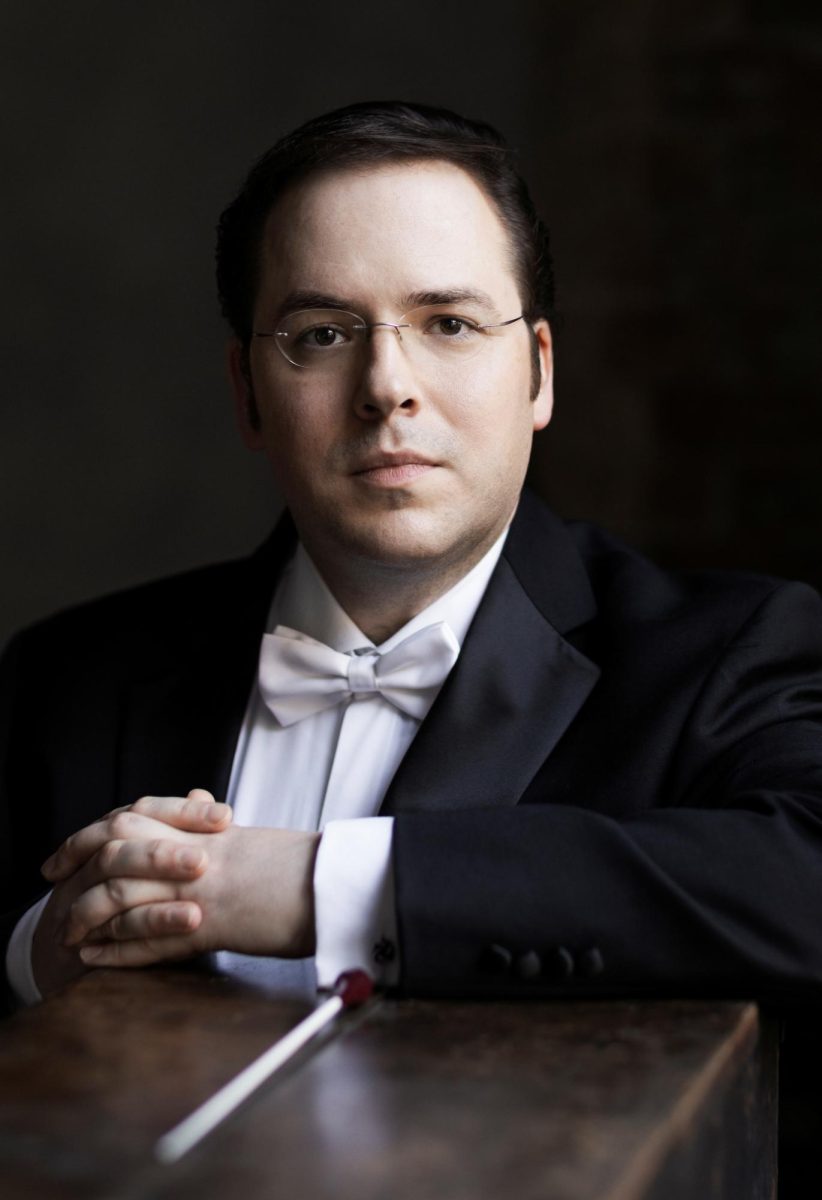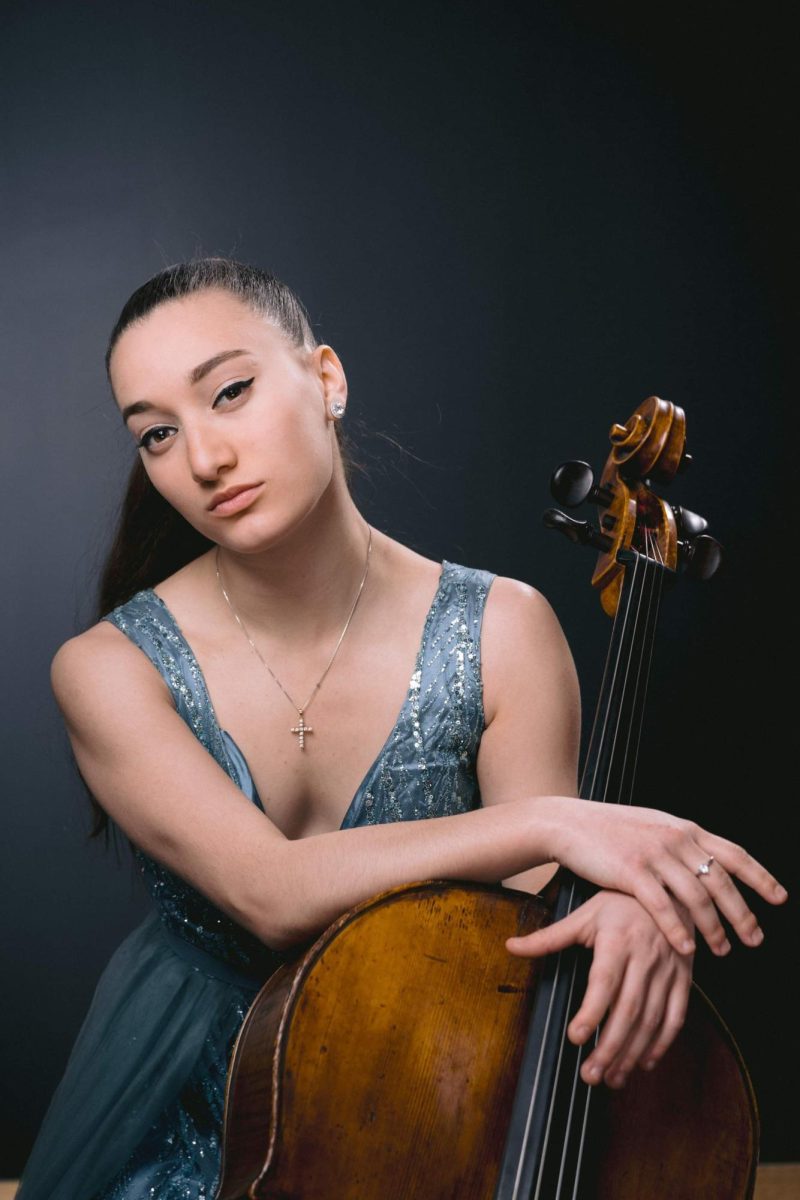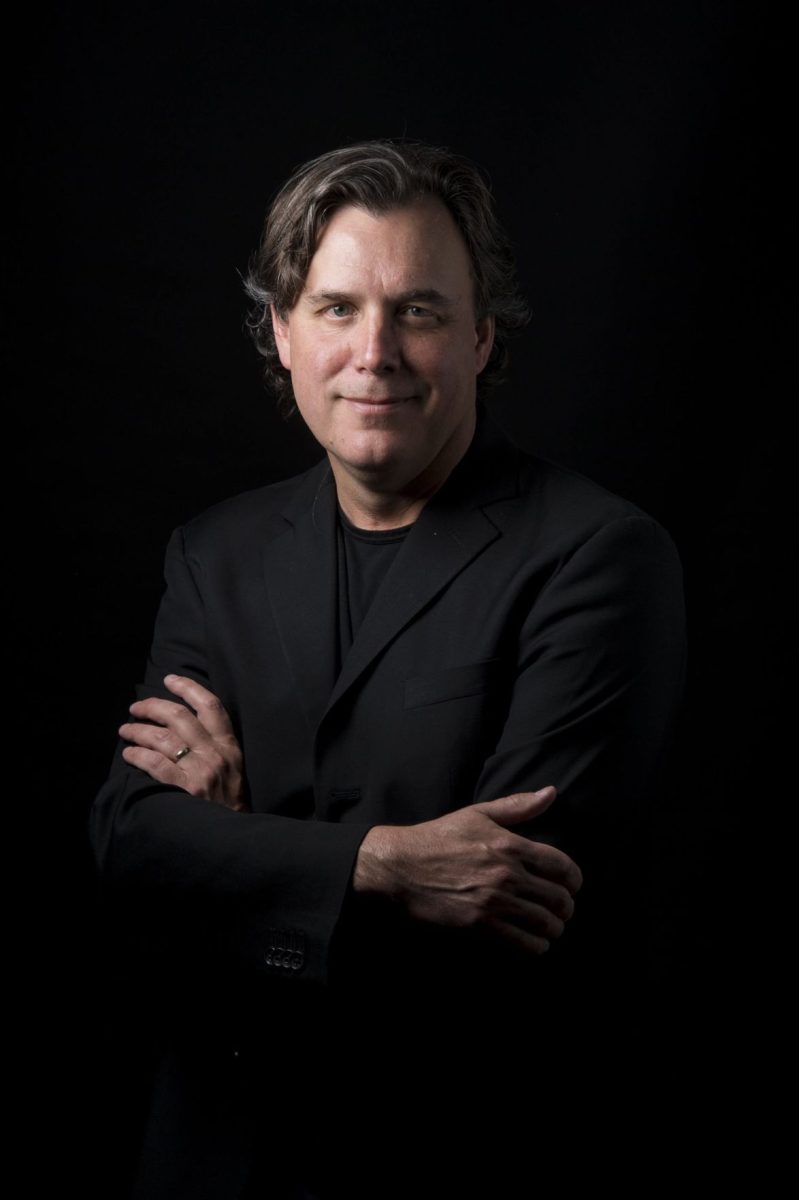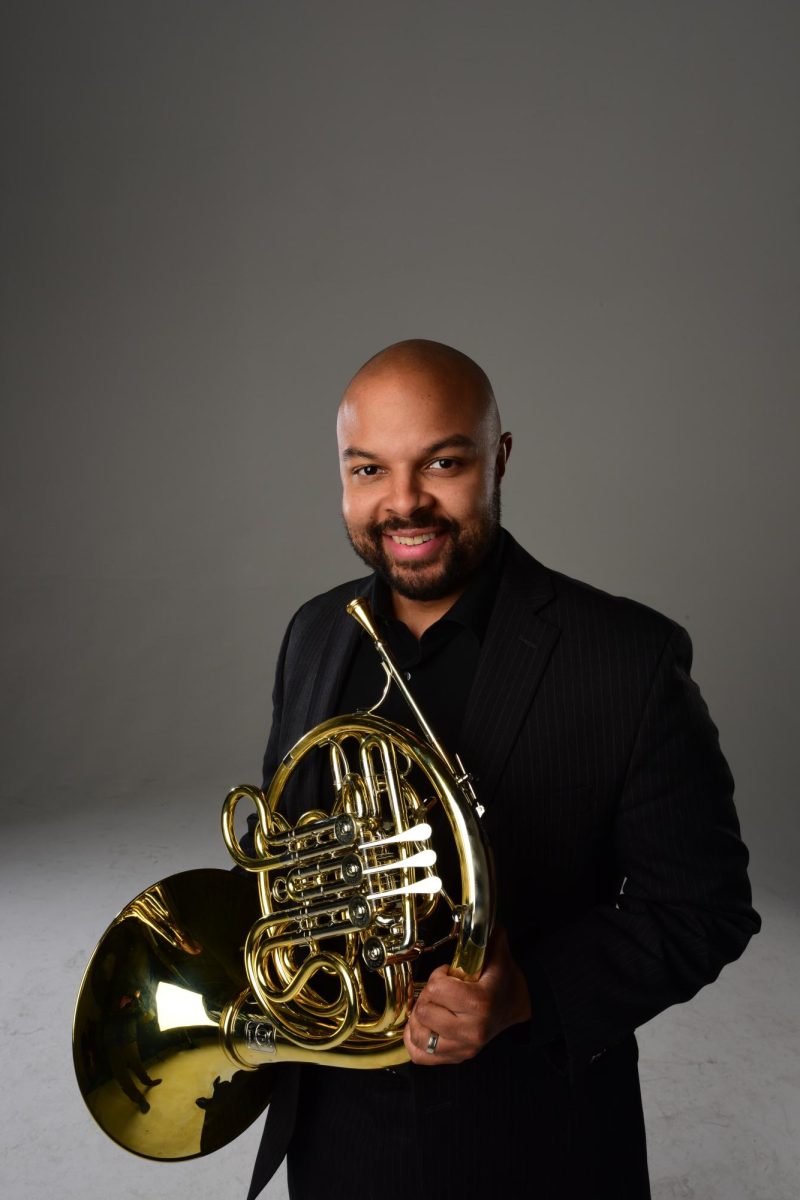This fall, the Conservatory welcomes guest conductor James Feddeck, OC ’05, back to the stage to conduct Oberlin’s orchestra, chamber orchestra, and fall opera while Professor Raphael Jiménez is on sabbatical. Feddeck, who also received an M.M. in Conducting from the Conservatory in 2006, is a renowned conductor who has held positions in some of the world’s top orchestras since the end of his four-year tenure as Assistant Conductor of The Cleveland Orchestra in 2013. He has conducted many of Europe’s leading orchestras including the Orchestre National de France, Vienna Radio Symphony Orchestra, Deutsches Symphonie-Orchester Berlin, Royal Scottish National Orchestra, and the Warsaw Philharmonic, to name a few. He is a winner of The Sir Georg Solti Conducting Award, the Aspen Conductor Prize, and the Outstanding Young Alumni Award from Oberlin. Since 2020, he has served as the Principal Conductor of Orchestra i Pomeriggi Musicali in Milan, Italy.
Feddeck will perform in Finney Chapel with the Oberlin and Chamber Orchestras Sept. 21 and 27 at 7:30 p.m.
This interview has been edited for length and clarity.
Since you graduated from Oberlin, you have served as a conductor for various orchestras across the world. What is it like to be back leading Oberlin’s main orchestras for the semester?
I feel incredibly inspired. It’s been a really exciting experience to be back here because I see such a bright future for classical music. I don’t know if it’s what we’ve been through in terms of the pandemic or economic concerns, but there tends to be a lot of concern about the future of the arts, the future of culture. I believe those concerns are good because we need to be concerned about culture and the arts. But coming back here and meeting so many wonderful students and such enthusiastic faculty that are new since I was last here, I feel inspired about the future of music by everybody here. I think Oberlin is one of the most important and special places for this because people are really encouraged to find their own voice.
How has working with different orchestras across multiple countries impacted your approach to conducting and music generally?
People often think the conductor is always the giver of ideas to an ensemble, but sometimes the ensemble inspires the conductor. And usually it is that way — both directions. For many years, I didn’t repeat repertoire when I was conducting different orchestras around the world, and for many years, I also wanted to do repertoire that a lot of people thought would be risky to do in certain places; for example, to do Beethoven in Germany or Brahms in Vienna. I’ve never wanted to take the safe approach in terms of comfort, and as a result, I have learned so much about their traditions. What we are learning in a conservatory, among other things, is the great inheritance of the traditions before us. Yes, we can innovate that, but we also need to understand what our inheritance is first. By working with so many different orchestras, I felt personally that I pushed the limit to get so many different ideas. I have things written in my scores, such as “Orchestra ‘blank’ did a phenomenal bowing,” that would have never occurred to me otherwise. When they did it, and I said, “Wow, that is a great point,” they all smiled and realized that not only did somebody recognize that, but it was also a gift they were willing to share. I also think that’s important to us, because we are all students. I’m as much a learner of this as everybody else, no matter how old, young, experienced, or anything else.
Is there any conducting experience you would like to highlight as being integral or profoundly impactful to your musical approach?
I have learned from every experience. Every orchestra has its own voice, its own approach, because of the people in it. I’ve learned a lot by conducting opera in Italy, which is with my orchestra theater there, because that is such a large part of their culture. But I’ve learned with every orchestra I’ve ever worked with because people always bring the best of who they are and their artistic ideas, and all of that is very valuable. I have conducted Rachmaninoff’s Symphonic Dances four or five times. I did it in Japan once, and they were so completely different than when I did it in London. That’s some of the mystery. You think, ‘Well, the conductor is going to dictate the interpretation.’ But really, that’s a matter of opinion. I like an approach where my musicians feel free to express themselves. I try to give a perspective and a vision of my interpretation in rehearsals, and then how we get to those details is a combination of factors of conductor and musicians together. I believe that leads to the most exhilarating, true live performance because my musicians feel they can express themselves perfectly.
Out of the repertoire you are conducting this semester, which piece are you most excited for and why?
I spent a long time trying to choose this repertoire. There was a lot of back and forth, but I wanted to give as much exposure to certain areas of the repertoire that are important to the tradition — styles that one really can only learn and develop by playing. There’s a handful of composers and pieces like that, such as a Mozart symphony. Looking at Rachmaninoff or Schumann, these are very particular styles. What I really wish to convey is when a musician sits down and has a part in front of them that says, for example, “Schumann,” they will immediately know what to do. These are representative areas of the repertoire that I want to develop with everybody. So, I’m very excited about every piece. In the end, what we are about here at Oberlin is making complete artists. When you are playing repertoire like this with people to this degree, it requires the highest development of all of your skills: your sensitivities, artistries, how you listen to details and nuance. Everything else does that, but somehow it is suddenly amplified when you are faced with these corners of the repertoire. It’s not every day one has the chance to be exposed to a theatrical work like the Weber, with this kind of 19th-century German romanticism. This means certain stylistic things for color, articulation, and rhythm. It comes completely out of the line of Schubert and Mozart. However, you can’t actually get to contemporaries like Mahler unless you’ve completed a study of Mozart, Schubert, and maybe Weber and some other contemporaries. Then maybe you can start to understand the lineage that Mahler inherited. A big issue to me is that in our general education for musicians, we have a lot of repertoire we are just expected to know. We then interpret the older works through a contemporary viewpoint, which is not at all how we should approach that. We should look at, for example, Rachmaninoff from a certain lineage forward rather than Shostakovich and back. I chose these pieces to fill in those areas of the repertoire that I hope will fill in some of those blanks.










